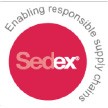OILS NEWS SPECIAL EDITION | 2ND MARCH 2026 | STRAIT OF HORMUZ CRISIS ⚠ MARKET ALERT: HIGH IMPACT EVENT IN PROGRESS
March 2, 2026
GLOBAL OILS INTELLIGENCE Philippine Coconut & Food Oils Market Briefing US-Israeli strikes on Iran (28…
Desiccated Coconut: Export Prices Hold Firm
Export prices for desiccated coconut remain stable at 147–190¢/lb FOB across the USA, Europe, and other markets for the twelfth week in a row. This consistency shows steady global demand despite volatility in vegetable oil markets and recent typhoons impacting Philippine coconut regions. Locally, desiccated coconut prices in Manila have slightly increased to ₱5,309–5,604 per 100-lb bag from ₱5,294–5,588 last week, reflecting growing domestic confidence and reduced raw material availability.
Coconut Oil Market Softens Internationally, Strengthens Locally
Internationally, coconut oil prices in Rotterdam softened slightly, settling between $2,365 and $2,465/MT CIF, as buyers stayed mostly inactive and traders adopted a wait-and-see approach amid consecutive typhoons across the Philippines. Despite the decline in forward prices, the market remains at historically high levels, still trading at a premium to palm kernel oil. Domestically, however, coconut oil prices increased: crude coconut oil reached ₱143–151/kg, and RBD oil closed at ₱153.50–155/kg, both excluding VAT. Continued local demand and supply constraints are supporting this price firmness.
Local Copra Prices Continue Their Uptrend
Local copra prices have risen across all major regions this week. In Quezon, prices increased to ₱8,150–8,400 per 100 kg from ₱8,050–8,200. Bicol, Visayas, and Mindanao also saw gains, reaching ₱7,850–8,100. The national average is now ₱7,720, up ₱140. Prices are driven up by higher local demand for coconut oil and supply constraints from storm damage in key provinces.
The PCA’s daily market report confirms these trends, indicating that millgate prices are generally increasing in Regions IV-A, IX, X, XI, and XII. The average millgate price has risen to ₱74.38/kg from ₱73.69 the previous day, reinforcing the idea of a strengthening copra market.
Market Outlook
The coconut sector enters year-end with firm domestic fundamentals: rising copra prices, strengthening coconut oil values in the Philippines, and stable desiccated coconut export prices. International sentiment, however, remains cautious, with Rotterdam markets showing softness and buyers delaying forward commitments.
Weather disruptions and tightening raw material supply will continue to shape pricing in the coming weeks. For exporters and processors, managing supply continuity and forward cover remains key as the market balances strong domestic buying with softer global benchmarks.
Container Price Update
Shippers moving product from Asia to North-west Europe face higher costs due to a rise in rates, with the Shanghai–Rotterdam index up 8% on the week to US$2,193.
The WCI shows Asia–Europe rates tightening, while other routes soften. Rates from the Philippines into Rotterdam will vary, but follow this trend.Carriers attempt to push FAK rates in the US$3,100–4,000 range from December, aiming to “re-rate” trade before 2026 contract talks.
If Suez routes normalise, supply–demand may weaken, risking higher long-term rates despite changing fundamentals.
Shippers should budget for higher spot freight in Q1 but avoid long contracts at current levels without protections.
Note:
The Rotterdam market is rarely used nowadays. Most transactions are handled directly by major commodities traders, typically known as ABCD—Archer Daniels Midland, Bunge, Cargill, and Louis Dreyfus, with Wilmar also being a significant player. These firms buy directly from millers in the Philippines, thus bypassing the Rotterdam market. When we refer to a quiet market, it doesn’t necessarily mean no business is being done; rather, it is just not publicly disclosed. Therefore, it shouldn’t be seen as an indicator of the market’s overall health or future direction. The UCAP in the Philippines relies on this information for its market forecasts, as it is the only available resource. We also pass this information on as part of our many information sources, noting that we do not have access to private trades beyond our own.
Why not subscribe to receive the latest market news straight to your inbox to clinch the best deal!
March 2, 2026
GLOBAL OILS INTELLIGENCE Philippine Coconut & Food Oils Market Briefing US-Israeli strikes on Iran (28…
February 23, 2026
Desiccated coconut: export range widens; Manila market ticks lower After months of stability, UCAP reported…
February 17, 2026
Philippine copra and coconut oil prices strengthened again this week, supported by firm global vegetable…
February 9, 2026
Desiccated coconut: steady export ranges; local prices slightly softer Exported desiccated coconut remains notably stable,…
February 2, 2026
Desiccated coconut: steady pricing, resilient demand Desiccated coconut remains one of the most stable coconut…
January 26, 2026
Desiccated coconut: export range unchanged, local prices edging up Desiccated coconut remains quite stable. UCAP…
If you require technical information about our products, then please login here to access the most up to date information...
Let's take a look at this...









